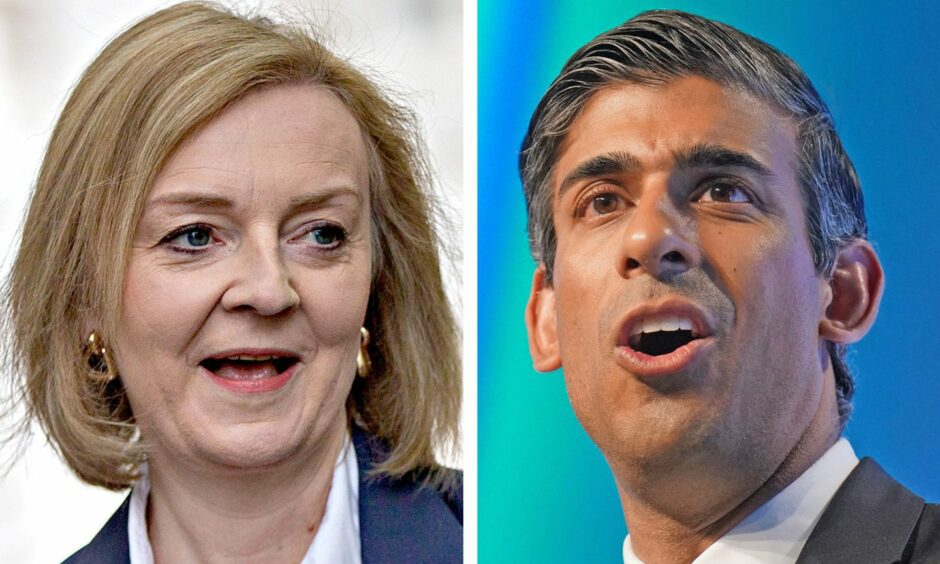
Rishi Sunak pledged to scrap value added tax on all domestic energy bills for the next year if he becomes UK prime minister, a move his leadership rival, Liz Truss, criticized as a U-turn.
Announcing a “winter plan” to address inflation and the cost of living, Sunak’s campaign said he would introduce a “targeted, temporary and timely tax cut” by removing VAT on domestic energy bills if a price cap imposed by the regulator rises above £3,000 ($3,610) as expected later this year.
The measure – which Bloomberg Economist Dan Hanson estimates would cost about £4 billion – marks an about-turn by Sunak, who earlier this year had argued it would “disproportionately benefit wealthier households,” when he was Chancellor of the Exchequer.
Sunak is trying to turn around his prospects of winning the runoff against Truss, who has emerged as the clear front-runner among the Tory Party membership who will elect a winner. The economy has emerged as a clear dividing line between the candidates, with Truss arguing for immediate tax cuts to help tackle the cost-of-living crisis, and Sunak arguing the priority is to bear down on inflation.
Lowering inflation
Late Tuesday, the former chancellor’s campaign argued the policy would “bear down on prices,” contrasting it with tax cuts promised by Truss that they warned would “stoke inflation.”
Hanson said the policy would cost the equivalent of 0.2% of the UK’s Gross Domestic Product, a small economic impact. He said that based on an assumption the price cap is set to rise by 60% in October, the VAT cut would mean it instead rises by 52%. He also said Sunak’s policy would have a direct impact on inflation, reducing it by about 0.4 percentage point in October. That would mean an 0.4-point uplift to inflation once the tax holiday expires a year later.
Sunak also said he would “expand the labor force” by “tightening up the rules on out of work benefits,” doubling the number of hours a week someone on welfare has to work to avoid looking for a full-time job.
Work and Pensions Secretary Therese Coffey, a Truss supporter, accused him of blocking the very same changes to benefit rules while he was chancellor.
The Truss campaign also accused Sunak of changing his mind on VAT, pointing to his comments in the House of Commons in February that the policy would help wealthier households more than poorer one. It’s an argument he made again in May, telling the Commons that a VAT cut would give “higher tax discounts to those who are particularly wealthy or have large houses and energy bills.”
Business Secretary Kwasi Kwarteng – a prominent Truss backer – on Wednesday told GB News that Sunak’s plan was a “screeching handbrake U-turn.”
Pat McFadden, Labour’s shadow chief secretary to the Treasury, said that Sunak was guilty of “playing hokey cokey with our taxes” and “acting as his own personal rebuttal unit — attacking a policy for months, then adopting it.”
Separately, Truss’ campaign announced a new policy on crime, setting a target for police to cut homicide, serious violence and neighborhood crime by 20% by the end of the current Parliament.
Her campaign also said she would publish league tables showing how police forces are performing against the national trend.
Recommended for you
